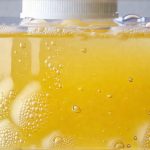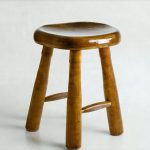The experience is frustratingly common: days – sometimes even weeks – spent indulging in readily available, often highly palatable foods, followed by a period where your digestive system seems to have…lost its rhythm. You might find yourself experiencing unusually soft stools, a sense of bloating, or an overall sluggishness that feels distinctly different from typical digestion. This isn’t necessarily a sign of illness, but rather a very normal physiological response to pushing your gut beyond its usual limits. It’s the body attempting to recalibrate after extended periods where it was consistently overloaded with processing large volumes of food, especially foods high in fat, sugar, or processed ingredients. Understanding why this happens is the first step toward restoring digestive comfort and preventing future occurrences.
This post-indulgence phase isn’t about guilt or restrictive dieting; it’s about recognizing that our bodies are remarkably adaptable systems. They can handle occasional deviations from optimal eating habits, but prolonged periods of excessive consumption inevitably disrupt the delicate balance within our digestive tract. The key is to understand the mechanisms at play – how mindless eating affects gut motility, microbiome composition, and overall digestive function – so you can support your body’s natural recovery process rather than fight against it. It’s a chance to reset, listen to your body’s signals, and re-establish healthier habits that prioritize sustained well-being over fleeting gratification.
Understanding the Digestive Disruption
Mindless eating, characterized by consuming food without conscious awareness of hunger cues or portion sizes, often leads to significant stress on the digestive system. It’s not just what we eat during these periods but how much and with what level of attention that contributes to the subsequent soft bowel days. When consistently presented with large quantities of food, particularly those lacking in fiber and rich in fats and sugars, our gut undergoes several changes. One prominent effect is altered gut motility – the coordinated contractions that move food through your digestive tract. The sheer volume can overwhelm the system, slowing down digestion initially, but then often resulting in a faster-than-normal transit time as the body attempts to clear out the backlog.
This rapid transit doesn’t allow for adequate water absorption, leading to softer stools. Furthermore, the types of foods typically consumed during mindless eating periods – processed snacks, sugary drinks, fast food – tend to be low in prebiotic fibers that feed beneficial gut bacteria. This can disrupt the delicate balance of the gut microbiome, favoring less desirable bacterial populations and potentially contributing to inflammation. A compromised microbiome is less efficient at breaking down food properly, further exacerbating digestive issues.
It’s also important to remember the impact on bile production. High-fat diets require more bile for digestion, and the constant demand can overwhelm the liver’s capacity. This may lead to incomplete fat absorption, which can itself contribute to looser stools. Essentially, prolonged mindless eating creates a cascade of disruptions that collectively manifest as digestive discomfort after the indulgence ceases. If you experience pain after eating it’s important to understand what is happening.
Restoring Digestive Harmony
The good news is that these changes are often reversible with relatively simple adjustments. The primary goal during this recovery period should be to give your digestive system a break and support its natural healing processes. This isn’t about drastic dietary restrictions but rather a shift towards more gentle, easily digestible foods. Increasing fiber intake gradually is crucial – sudden increases can actually worsen symptoms initially – as it helps regulate bowel movements and feeds beneficial gut bacteria. Focus on soluble fiber sources like oats, bananas (slightly green are best), applesauce, and cooked vegetables.
Hydration is paramount. Water aids in softening stools and supports the overall digestive process. Aim for at least eight glasses of water per day, and consider incorporating herbal teas known to soothe digestion, such as peppermint or chamomile. Beyond diet, mindful practices can also play a significant role. Reducing stress levels, getting adequate sleep (7-8 hours), and engaging in gentle exercise – like walking or yoga – can all contribute to improved digestive function. These lifestyle factors influence the gut-brain axis, the bidirectional communication pathway between your digestive system and brain, which is vital for optimal digestion. Digestive rest days can also be beneficial.
Supporting Gut Microbiome Recovery
The gut microbiome plays an integral role in overall health and particularly impacts digestive regularity. After periods of mindless eating, rebuilding a healthy microbial community can significantly reduce soft bowel days and improve digestive function.
– Probiotic foods like yogurt (with live cultures), kefir, sauerkraut, kimchi, and kombucha introduce beneficial bacteria into the gut. However, it’s important to note that probiotic supplements aren’t always necessary; obtaining probiotics through food is often more effective.
– Prebiotics, as mentioned earlier, are essential for feeding existing good bacteria. Foods rich in prebiotics include garlic, onions, leeks, asparagus, bananas, and oats.
– Avoiding artificial sweeteners and excessive sugar intake also supports a healthier microbiome, as these substances can disrupt bacterial balance.
Consider incorporating fermented foods gradually into your diet to avoid digestive upset. Start with small amounts and observe how your body responds. A diverse diet rich in plant-based foods is the foundation of a thriving gut microbiome. Stomach-soothing foods can help during this process.
Gentle Dietary Strategies
Navigating food choices during this recovery period requires a thoughtful approach. The BRAT diet (Bananas, Rice, Applesauce, Toast) has historically been recommended for digestive upset, but it’s often too restrictive and lacks essential nutrients. A more balanced strategy focuses on easily digestible foods that won’t further irritate the gut:
1. Prioritize cooked vegetables over raw ones, as cooking breaks down fibers making them easier to digest. Steam or boil vegetables until tender.
2. Choose lean protein sources like chicken, fish, or tofu prepared without excessive fat.
3. Limit dairy intake if you suspect lactose intolerance; consider lactose-free alternatives.
4. Avoid fried foods, greasy meals, spicy foods, and excessive caffeine and alcohol, as these can all exacerbate digestive symptoms.
Remember to eat smaller, more frequent meals throughout the day rather than large portions. This reduces the burden on your digestive system and allows for better nutrient absorption. Slowing down during mealtimes and chewing thoroughly also aids digestion. Evening gut reset meals can help set you up for success.
Recognizing When to Seek Professional Help
While soft bowel days after periods of mindful eating are usually self-limiting, it’s crucial to recognize when professional medical advice is necessary. Persistent diarrhea lasting more than a few days, accompanied by fever, severe abdominal pain, blood in the stool, or dehydration, warrants immediate attention. These symptoms could indicate an underlying infection or condition that requires medical intervention.
If you have pre-existing digestive conditions like Irritable Bowel Syndrome (IBS) or Inflammatory Bowel Disease (IBD), it’s particularly important to consult with your healthcare provider before making significant dietary changes. They can help determine the best course of action based on your individual needs and medical history. Don’t hesitate to seek guidance if you are concerned about your digestive health – early intervention is always preferable. Follow-up tools can be helpful after a flare up. Furthermore, taking short breaks for micro-movement snacking throughout the day can help with digestion and overall wellbeing. Ultimately, listening to your body and prioritizing its well-being will lead to lasting improvements in digestive comfort and overall health. Simple tea rituals are also a great way to support digestion.


















